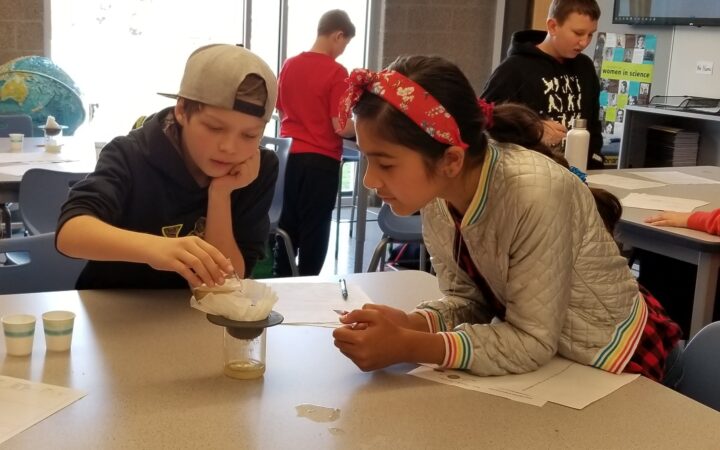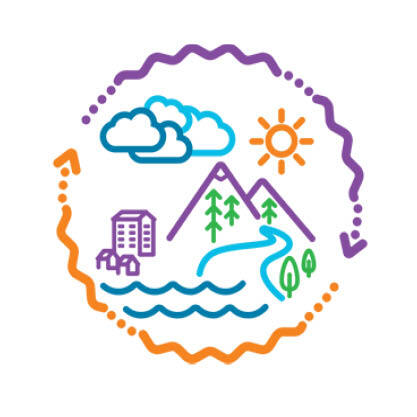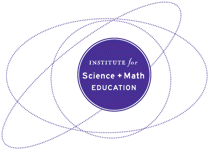Navigating the Political Dimensions of Climate Change Teaching and Learning

- Teachers should use socio-historical approaches in science teaching to help students develop a nuanced, complex understanding of global climate change.
- District Staff & PD Providers should support students and educators to develop critical thinking by using scientific knowledge and practices in authentic local contexts impacted by climate change.
- School Leaders should communicate with teachers, students, and families about the socio-historical nature of STEM, particularly about global climate change and the role of education in disrupting it.
What Is The Issue?
As educators consider teaching about global climate change, many express concern about the “political” nature of the subject. This concern is often rooted in a belief that STEM subjects—within which much of climate change learning is situated—are somehow apolitical or value-free in nature. To unpack these concerns, educators should explore: (1) How is STEM inherently political?, (2) What do we mean by “political” in the context of climate change learning?, and (3) How do we support youth in developing STEM knowledge and critical thinking practices—rather than imposing belief systems on young people?
Authors:
BY DEB L. MORRISON, BRIAN MACNEVIN & PHILIP BELL | AUGUST 2021
Reflection Questions
- In what ways is the term “political” used to advance or hinder students from taking action in response to their learning about climate change?
- How should students’ own questions and learning about climate change lead them to engage with community beyond the school building?
Things To Consider
What do we mean by “political” when discussing climate change?
- Climate change is not controversial within the scientific community, though it can be in broader society. The word “political” in the context of climate change education often refers to the societal controversy. People are trying both to remove climate change from the curriculum and trying to keep it or add it into learning goals. The broad consensus is that climate literacy is a key aspect of scientific literacy and should be taught.
- As described in the Framework, science is fundamentally a human endeavor. Scientific work is socially situated and there is no way of detaching it from the values held by the scientists involved. It is political.
How do we develop shared STEM knowledge and critical thinking practices around climate change?
- Learning shared knowledge and critical thinking practices should be clearly differentiated from indoctrinating students with particular belief systems. Education is best approached as a way to cultivate community members who have the critical thinking skills and knowledge to engage in collaborative, public problem solving and decision making.
- Societal and community decisions are not only made using science-based information, but rely on social and cultural contexts to resolve issues. Teaching climate change helps young people develop an understanding of how decisions on science are made in real socio-scientific contexts.
Attending to Equity
- While all communities are impacted by climate change, some communities are being hit first and worst. Frontline communities are predominantly communities of color and/or those living in poverty. They often have less political power to impact the systemic changes needed to mitigate and adapt to the changing environment.
- Explore climate change efforts by communities of color and Indigenous communities. Consider how you and your students can engage with and support these impacted communities—rather than studying them from afar.
- With lower participation of historically marginalized peoples in the geosciences, the identification of pressing climate change impacts and the definition of solutions is likely not currently in the hands of those most directly affected. Helping young people feel they have a rightful presence in the science and engineering classroom can help change those trends.
Recommended Actions You Can Take
- Be prepared to discuss why young people are learning about climate change to foster professional learning with peers—and get your building administration on board, if they would be supportive, before you begin.
- With someone denying climate change, it can help to relate a value they hold to the need to respond to climate change. Focusing on local ways of talking about climate phenomena also tend to be helpful. Communities may use local terminology and frameworks to interpret and discuss changes they are witnessing. It helps to teach climate science in the context of socio-historical issues in local contexts. Learn from these project examples engaging teachers in learning how to do this.
- Support students to use science and engineering to advocate for their communities on socio-scientific issues, like climate change. Consider engaging in place-based science education focused on local action.
- Unpack specific language with your students to ensure they understand the multiple meanings of particular terms (e.g., political, civic, equity, social justice, environmental justice, climate justice, activism, science).
ALSO SEE STEM TEACHING TOOLS
STEM Teaching Tools content copyright 2014-22 UW Institute for Science + Math Education. All rights reserved.
This site is primarily funded by the National Science Foundation (NSF) through Award #1920249 (previously through Awards #1238253 and #1854059). Opinions expressed are not those of any funding agency.
Work is licensed under a Creative Commons Attribution-ShareAlike 4.0 Unported License. Others may adapt with attribution. Funded by the National Science Foundation (NSF). Opinions expressed are not those of any funding agency.


 Email Feedback
Email Feedback


